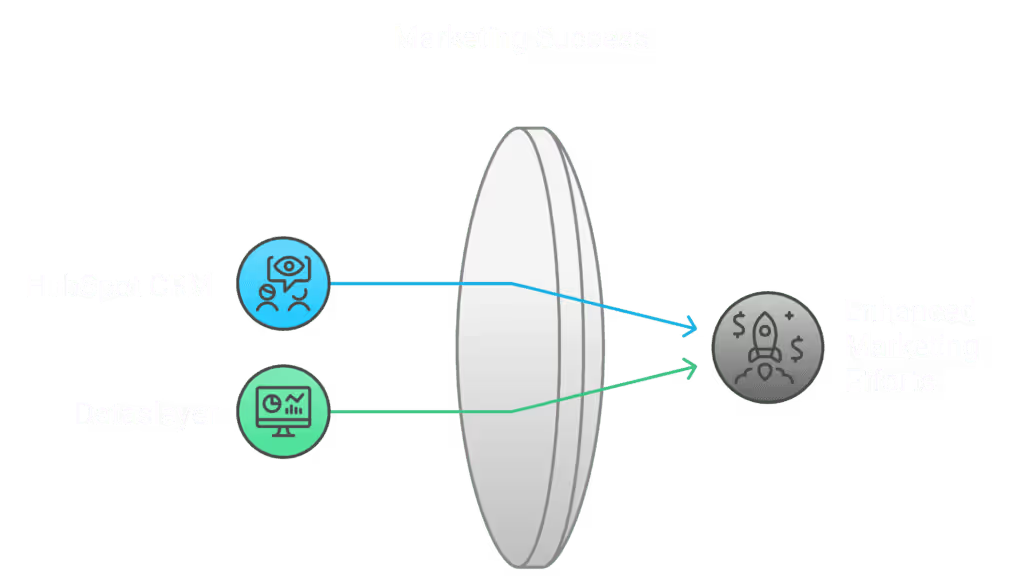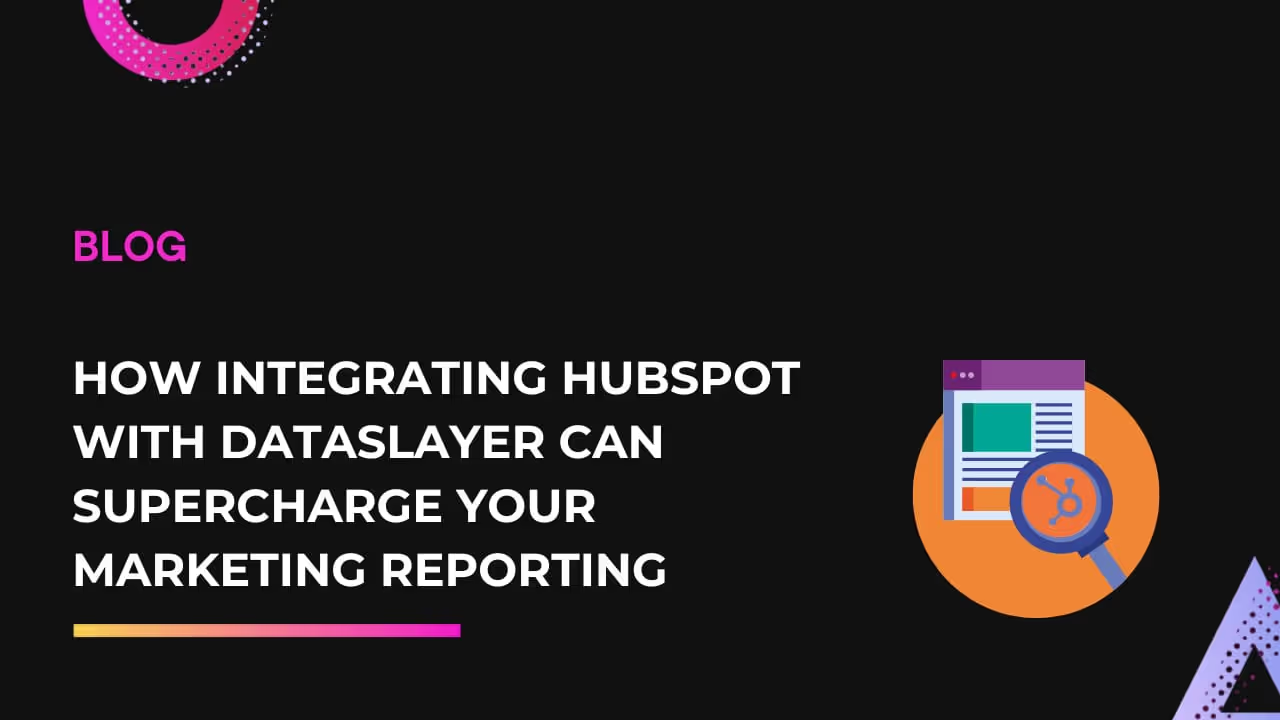HubSpot is renowned for its powerful CRM and inbound marketing capabilities, while Dataslayer specializes in simplifying data collection and marketing reporting. When these tools are integrated, marketers can optimize campaigns, track performance across channels, and generate cool insights. Below are key ways HubSpot and Dataslayer integration can increase your marketing efforts.

Centralized Marketing Data Reporting
One of the primary challenges marketers face is gathering data from multiple sources like social media, Google Analytics, and CRM tools like HubSpot. With Dataslayer, you can seamlessly connect HubSpot’s marketing and sales data to platforms like Google Sheets, Looker Studio, Big Query, Power BI or other destinations. This integration streamlines the process, centralizing all performance metrics without manual exports thus saving time and avoiding manual errors.
Use Case:
A marketing manager can integrate HubSpot with Dataslayer to automatically pull daily campaign data into Google Sheets for marketing reporting. This enables them to consolidate HubSpot insights with Facebook Ads and Google Ads performance, providing a more holistic view of their marketing strategies and offering valuable strategic insights for better marketing reporting.
Automated Marketing Reporting for Stakeholders
Creating reports for stakeholders can be time-consuming, but HubSpot and Dataslayer automate this task, reducing errors and saving time. Dataslayer extracts data like email opens, clicks, and conversions from HubSpot and generates automatic reports at regular intervals, making marketing reporting more efficient.
Use Case:
An agency managing inbound marketing campaigns can use Dataslayer to automate weekly and monthly HubSpot reports for marketing reporting, allowing them to share real-time data with clients without manual updates.

Tracking Multi-Channel Campaign Performance
Most modern marketing strategies span multiple channels, making it essential to have a comprehensive view of performance across all touchpoints. By integrating HubSpot with Dataslayer, you can merge HubSpot’s inbound data with metrics from other platforms like Google Ads, social media, and email marketing. This integration not only consolidates data from various sources but also provides a unified view of campaign performance, enabling marketers to analyze results more effectively. With all relevant data in one place, teams can gain deeper insights into how different channels are performing, optimize strategies, and make more informed decisions to drive better results.
Use Case:
A marketing director using HubSpot for email campaigns and Google Ads can leverage Dataslayer to create a comprehensive dashboard that shows how each channel contributes to overall campaign success.
Custom Dashboards and KPIs
Dataslayer allows for custom dashboards tailored to your specific KPIs, providing flexibility that goes beyond HubSpot’s built-in reporting. This feature enables businesses to focus on the most relevant metrics for their needs, offering more control over how data is visualized and interpreted. It is particularly valuable for businesses with unique goals or complex reporting requirements, as it allows for a more personalized approach to marketing reporting, helping teams make more informed decisions based on their specific objectives.
Use Case:
A B2B company using HubSpot to track leads can create a custom dashboard for marketing reporting that shows the cost per lead and sales cycle length, combining data from both HubSpot and ad platforms to assess marketing performance more accurately.
Monitoring Sales Pipeline Performance
HubSpot excels in managing sales pipelines, and integrating it with Dataslayer can help monitor pipeline performance more effectively. By blending marketing metrics with sales data, businesses can track their efforts from lead generation to final conversion.
Use Case:
A SaaS company can use Dataslayer to pull HubSpot data on deal stages and sales team performance, combining it with Google Analytics and ad platform data to get a full picture of the customer journey.

Deeper Data Analysis for Better Insights
For marketers who need deeper insights, Dataslayer allows for detailed data extraction from HubSpot, enabling ad-hoc analysis in tools like Google Sheets, Looker Studio or others. This flexibility is ideal for testing new strategies and evaluating niche segments.
Use Case:
A marketing analyst can use Dataslayer to export HubSpot data into Google Sheets, allowing for detailed analysis on how specific audience segments perform in email campaigns, helping optimize future strategies.
Conclusion
The integration of HubSpot and Dataslayer provides marketers with a powerful toolkit for improving data reporting, streamlining workflows, and gaining deeper insights into campaign performance. Whether you’re looking to automate reporting, track multi-channel efforts, or create custom dashboards, this combination can significantly improve your marketing effectiveness. Start your free trial now to enjoy the integration!







